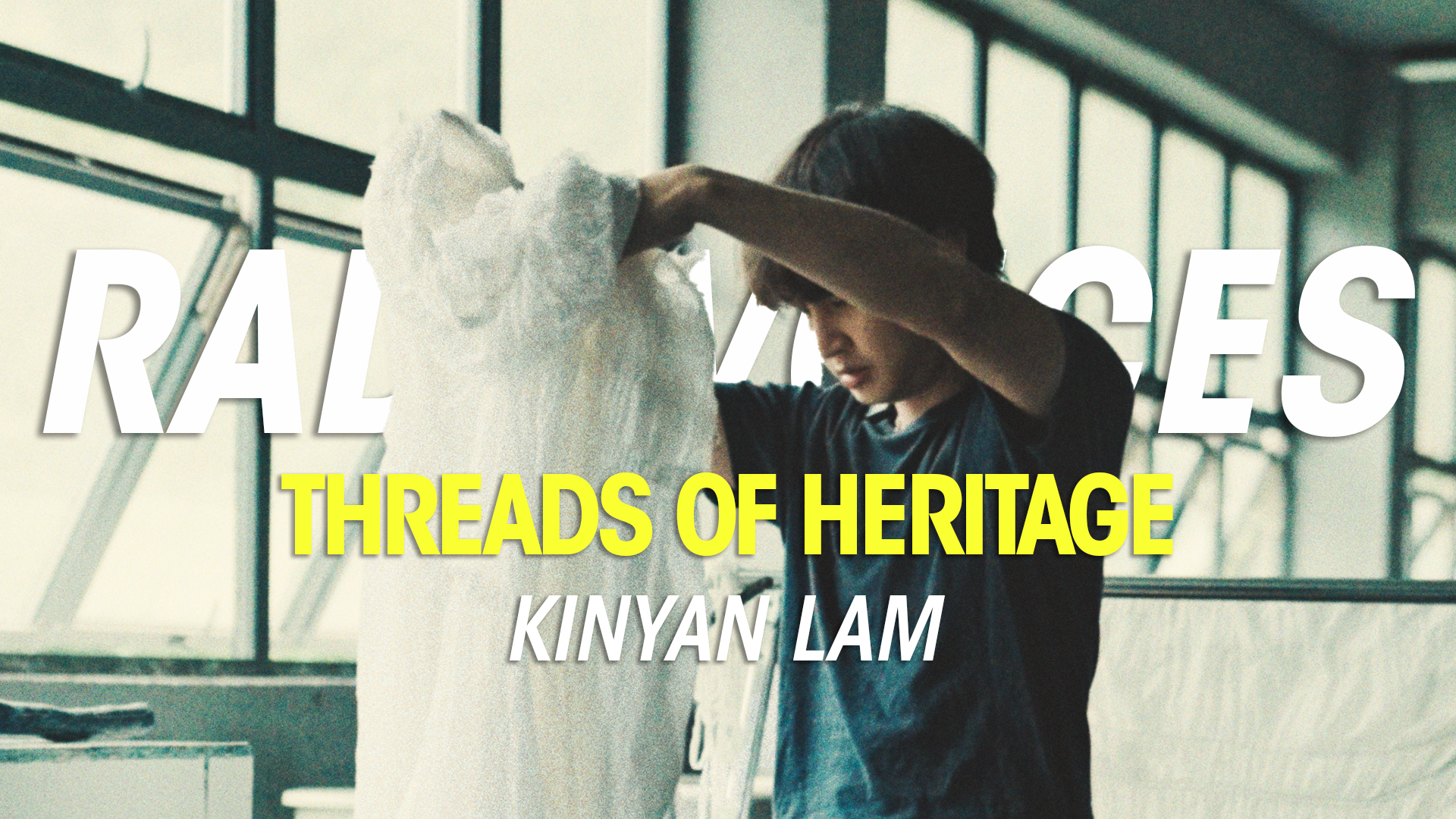Shi Xinwenyue bikes through Chengdu’s backstreets with headphones on, not listening to beats, but to a voice memo of his late grandmother. The recording appears in every song he produces now, a deliberate tag woven into tracks that blend Boston-trained hip-hop with the textures of Bashu culture. It’s an unusual production choice for an artist trying to build a career. But for Shi, who spent nearly a decade in the United States learning to rap in English, the voice serves as something more practical: proof that he still belongs here.
“I don’t see myself as a rapper,” Shi says. “I just do music.”
It’s a careful distinction. In a country where Chengdu’s Higher Brothers became international ambassadors for Chinese hip-hop, Shi represents a quieter phenomenon: artists of the reverse diaspora, returning not to capitalize on Western training, but to reconcile it with the identities they left behind.
The In-Between
Shi arrived in Boston in 2013 as a teenager. Both his parents are music professors, and his grandfather appears in many of his recent works, but it was American hip-hop—Chief Keef, Kendrick Lamar, J. Cole—that became his real education. “That served the purpose of getting to know my classmates better,” he explains. Learning the references, the slang, the rhythms: these were survival tools, not creative choices.
By 2017, the performance had worn thin. “I had an identity crisis,” Shi recalls. “I tried to find who I am, what shaped me, what made me a Sichuanese or Chengdunese person.”
The revelation wasn’t romantic. It was the disorienting realization that comes to many who leave home young: you can be fluent in a culture and still be a stranger to it. In Boston, he was too Chinese. On visits home, too Westernized. He describes the feeling as living in a “glass box,” a society where “we can see each other, we cannot really feel each other.”
It’s a metaphor that applies equally to diaspora life. Visibility without connection. Recognition without belonging.
Relearning Chengdu
When Shi returned to Chengdu full-time, he didn’t come back to perform—he came back to listen. He biked through neighborhoods, talked to people across class lines, absorbed the sounds of daily life. “This area of town really gave me that kind of space I needed to think,” he says. “I’m not painting this thing, but the people of the city did me this favor.”
The music that emerged wasn’t fusion for Western audiences. It was integration for himself. Mahjong sounds, Sichuan dialect, the orange and green colors of the region—”whatever I do, I think that represents half of me in Boston, half of me in Sichuan.” His videos, which he directs and edits himself, feature the kind of DIY aesthetic that would look amateurish if it weren’t so deliberate. In one, he uses a sock with a hole in it as a camera filter. “I’m just too lazy to get a…what you call that, a ‘spoof’?” he laughs. “I figured, why not just use the sock.”
The effect softens Chengdu’s edges, making the city look less like a backdrop and more like a memory.
The Illusion of Arrival
In 2020, Shi appeared on Rap for Youth [说唱新世代], produced by Bilibili and 88rising. The show made many contestants quite successful. Performances were clipped, remixed, and turned into memes. Contestants gained hundreds of thousands to millions of new followers overnight. Being online-only actually enhanced its cultural credibility. Unlike shows like The Rap of China (which aired on iQIYI and had heavy censorship), Rap for Youth was praised for artistic freedom, social commentary, and diverse voices, precisely because it wasn’t bound by state TV regulations.
Shi performed his song “ding ding men’r” (丁丁猫儿) and did well on the show, putting him into the limelight. During the interview, we got the sense it wasn’t his favorite performance. Fair enough. At RADII, though, we’d gladly hop into our ding ding men’r if it meant escaping the increasingly algorithmic logic of what counts as “making it” in Chinese hip-hop.
For Shi, the show confirmed what he’d suspected: online fame is hollow. “Popularity doesn’t mean you’ve arrived,” he reflects. “It just means you’re seen.” He began directing and editing his own videos not out of vanity, but necessity. “If I want to show the world my vision, it cannot just be one form. It has to be multifaceted.”
What Makes People People
Shi’s grandmother passed away in 2018, but her voice remains embedded in his music—not as gimmick, but as anchor. “I see it more as a signal, or a beacon,” he says. “I feel like I’m not trying to prolong her life. But I do think that voice gave me a lot of confidence and basically the dedication to continue my work.”
It’s part of a broader philosophy: “I want to make my music sound humane and organic and warm. Like, flaws are okay. Nobody is perfect. That is what makes people people.”
This isn’t the language of an artist chasing viral moments. It’s the language of someone trying to figure out what inheritance means when culture feels like a glass box—visible but untouchable.
“If you wanna inherit this culture that you are seeing, you were experiencing, that you’re so fond of, we’re gonna be the ones that kind of carry this torch,” Shi says.
He’s part of a quiet wave: reverse diaspora youth returning not to “make it big,” but to belong. His music isn’t for global charts. It’s for the kid in Chengdu who also feels split in two. His next EP, he says, will be “more of like touring Chengdu and exploring places.”
Now, when Shi says he’s from here, he finally means it.

















